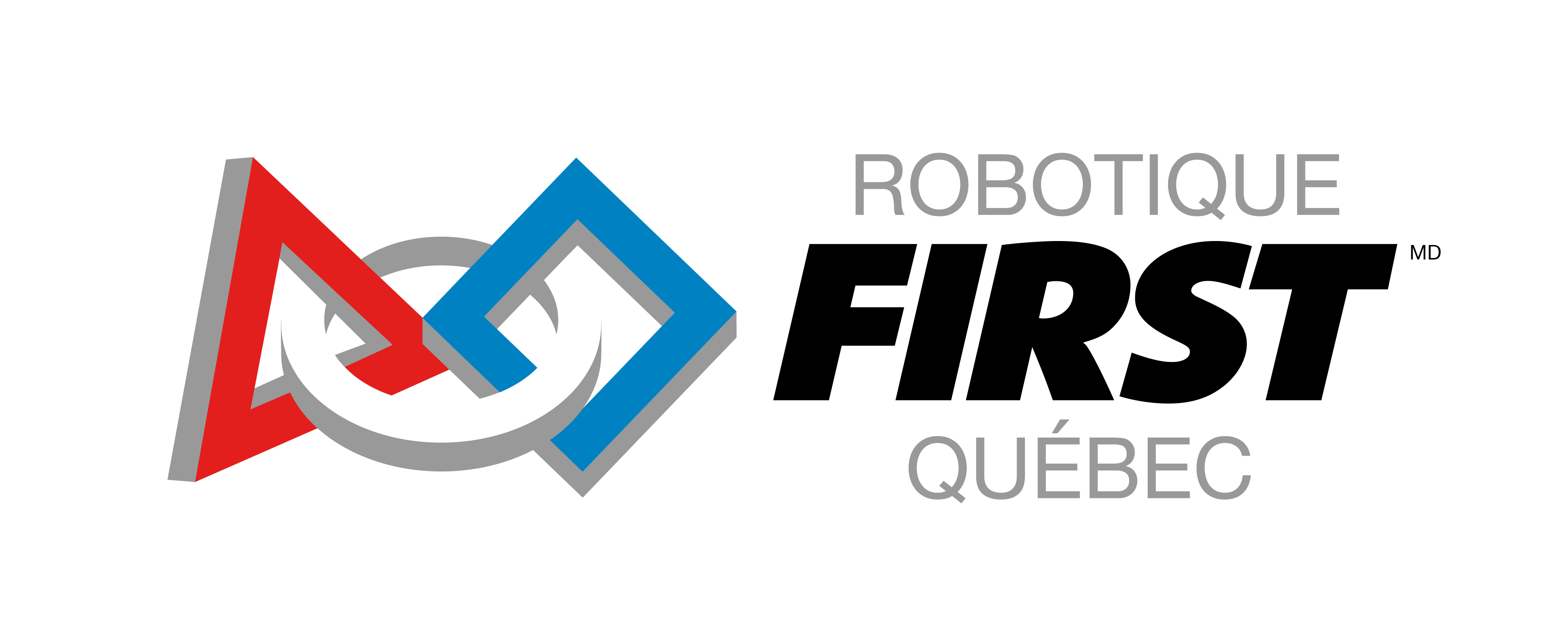Teams and society in general face new realities when it comes to safety. These new challenges should not represent a brake on the development and learning activities of students but constitute opportunities to develop a global, conscious and responsible culture in terms of prevention and promotion of healthy lifestyles, both personal and social.
The FIRST programs (FIRST LEGO League for 4-14 year olds and FIRST Robotics Competition for 14 to 18 year olds) are offered in Quebec in 2020-2021. The programs and their modalities (particularly with regard to events or competitive aspects) are adapted to the general context and to specific situations on a regional basis. The launch of a Quebec FIRST Tech Challenge league (12-18 years old) has been postponed to 2021-2022. FIRST programs involve collaborative work; it is not only a prized skill, but an cherished value.
Coaches, mentors and educators will therefore have to think about how to hold activities with students and adults of their team that will meet the requirements in prevention of transmission of viral or other infections (for example, the use and the cleaning of tools and workspaces). In addition to the instructions issued by the authorities (governments, service centers, school administrations, etc.), you will find below recommendations and ideas that can help you provide a safe environment for holding robotics activities this year.
Stay tuned for announcements regarding program and event adaptations. We are working with FIRST to continue to offer students an extraordinary experience that will impress on them. Scenarios include holding events and activities virtually (remotely) or in person (possibly of reduced size and / or duration) when possible. We also intend to adapt our team support according to their reality and restrictions. Our goal is to present a full offer to our community from the beginning of September 2020.
General recommendations regarding COVID-19
Below are some tips, recommendations and useful resources for FIRST coaches, mentors and educators. This list is not exhaustive. It is offered as an indication. Please always refer to local public health authorities for their guidelines and regulations.
Organization and teamwork
- Establish the composition of the work teams by following the groupings already established within the school, if applicable.
- Divide team members into sub-groups with specific mandates and tasks.
- Maintain the composition of the subgroups as long as possible
Meetings
- Follow local guidelines about gatherings and activities. Only team members without symptoms should have access to meetings.
- Announce meetings start and end times in advance so that everyone can organize their trips safely.
- Sub-groups should only meet physically every 3 to 5 days – e.g. virus persistence on surfaces.
- Record meeting attendance. Ask participants about their state of health.
- Comply to instructions regarding social distancing, hand washing, and facemasks.
- Plan frequent and regular hands washing or disinfection routines.
- Configure the meeting space in respect of safe distancing.
- Encourage the use of gloves when handling shared objects.
- Keep doors (rooms, cupboards, etc.) open to minimize handling.
- Keep the room well ventilated.
- No food should be consumed during meetings. Water bottles must be identified and not shared.
- If mentors are allowed to meet students in person, they should wear a facemask and visor. Contact Robotique FIRST Québec if this is an issue.
- Full team meetings should be done by video conference.
Here is an organizational model:

- In person meetings a in smaller sub-groups with distinct tasks to accomplish.
- The meetings are spaced out in time, especially when equipment or individuals are involved more than once a week. Try not to call on the same people and the same equipment within 3 days.
- Mentors can join the meetings by video conference.
- Global team meetings are held remotely to assess advancement, discuss and plan.
Handling of shared equipment
- Consider getting more materials, tools and other equipment to avoid sharing among participants.
- Obtain disinfection materials to clean materials, tools and other equipment after use.
- Establish a storage system to control the usage and disinfection of equipment.
- Designate sets of tools and equipment that allow participants to work in small groups and minimize equipment exchange.
- The disinfection routine should include surfaces (tables, chairs, handles, levers, robot, tools, keyboards and mice).
- In FIRST LEGO League, see LEGO Education Hygiene Guidelines (pdf).
Documentation
- Share links to electronic documentation electronically: websites, online resources, etc.
- Distribute and examine documents in electronic format.
Events
- In-person events (competitions) are currently on hold.
- Follow the guidelines of public health authorities, school service centers and event managers.
- When the events resume, only essential team members will be allowed to participate on site. Remote roles can be assigned to other team members.
- If possible, parents should transport their child to events. On a bus, the masks are required.
- Pay special attention to the equipment and who handles it.
- Upon return, the equipment should be quarantined for 3 to 5 days.
- Interviews (with judges or sponsors) should be done remotely.

